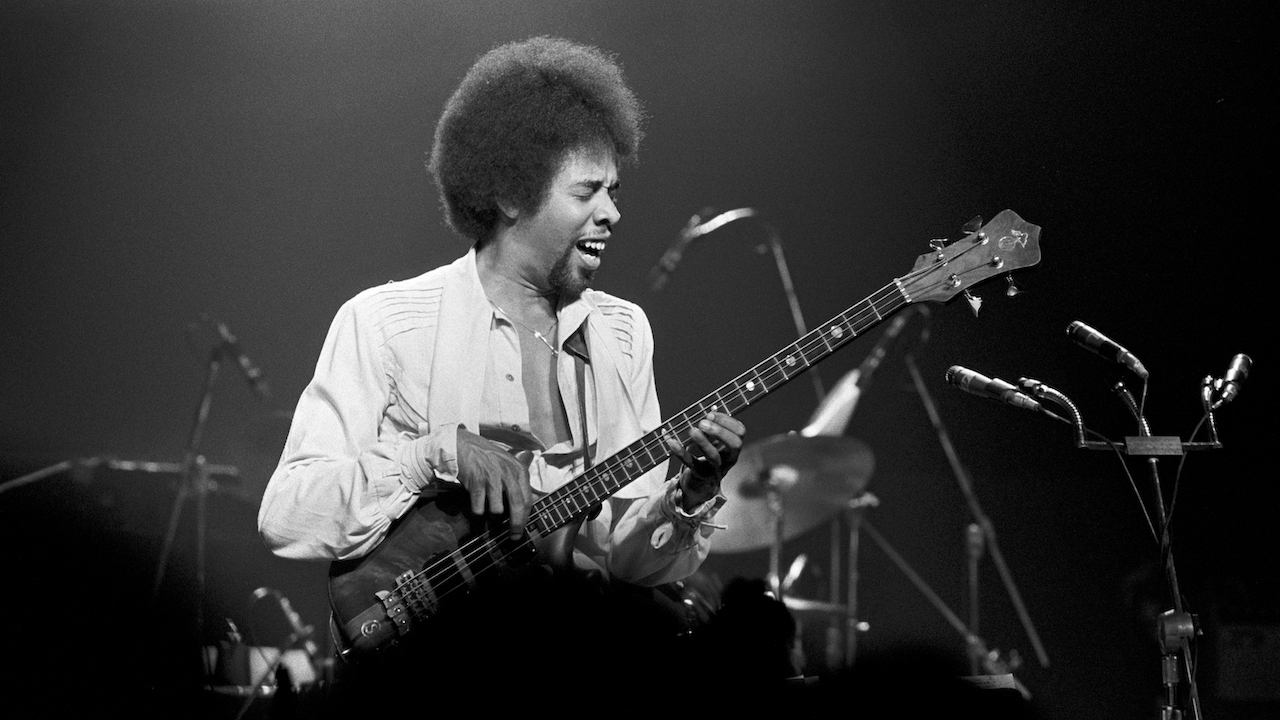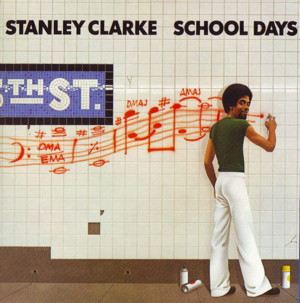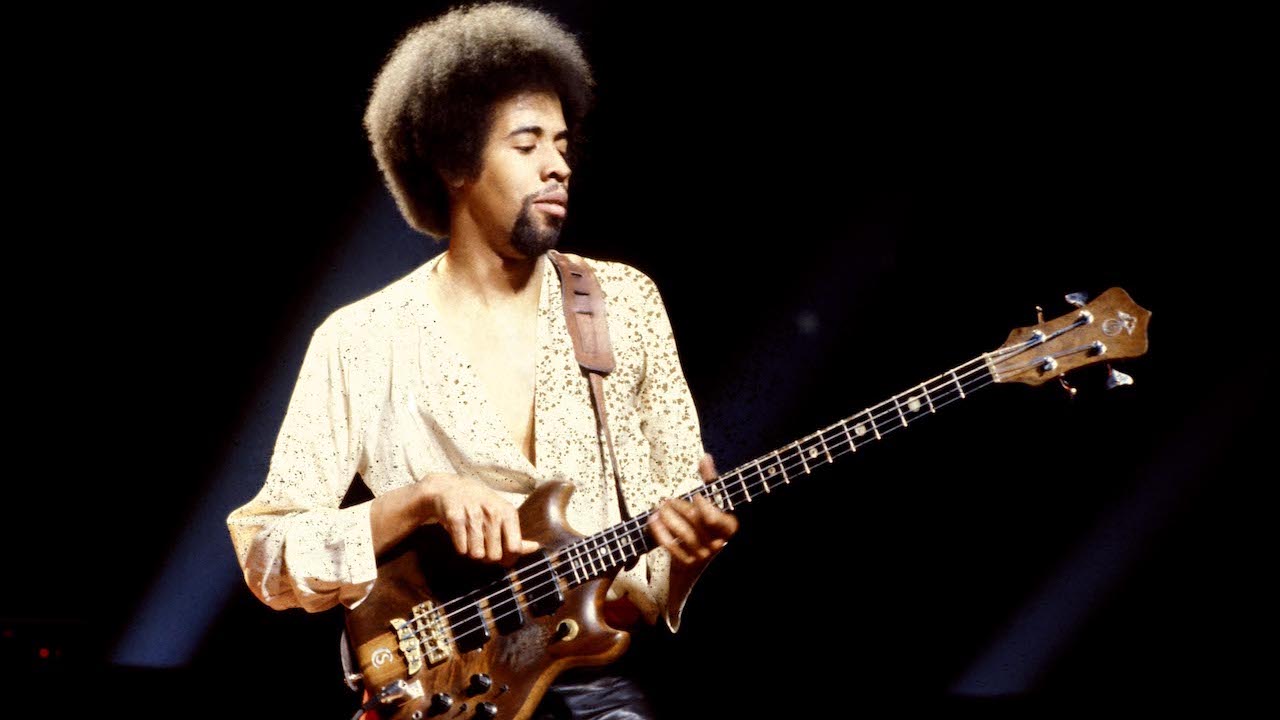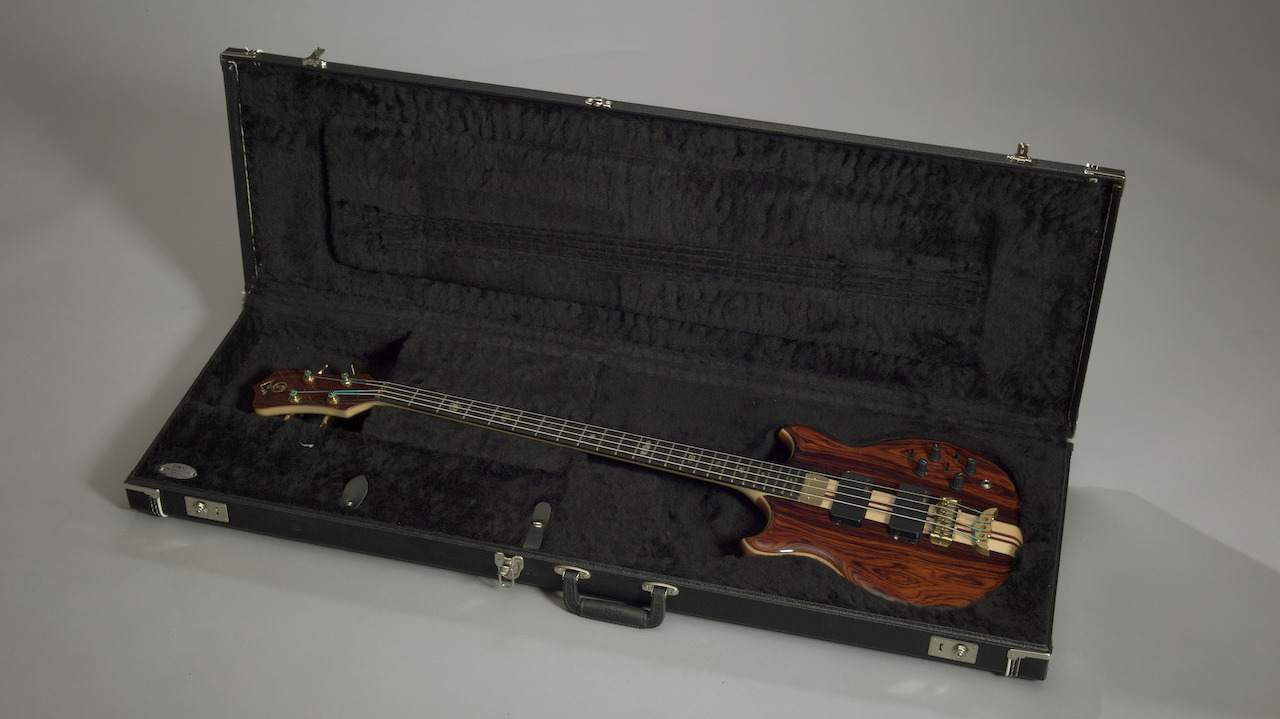Why Stanley Clarke’s School Days remains an iconic moment in bass playing history
School yourself on the player David Ellefson dubbed “the fastest ‘lead bass guitarist’ I had ever seen”

You can count on your fingers the bass players whose legacy comes close to Stanley Clarke, once of the fusion band Return To Forever and since then a constant collaborator with the great and the good of music. A jazz pioneer, Clarke has done more for the electric bass guitar than almost anybody else.
"I saw Stanley Clarke one night on The Midnight Special TV show when I was a teenager and I was floored by how he would open and close his right hand, almost strumming and plucking the bass in one smooth stroke," recalls former-Megadeth bassist David Ellefson. "He was probably the fastest ‘lead bass guitarist’ I had ever seen take a solo!"
School Days was Stanley Clarke’s third solo album and it was the one on which his compositional skills and his flamboyant bass solos really caught the bass world’s imagination. Clarke had already demonstrated his double bass chops on the first two albums with Chick Corea's Return to Forever, but with the advent of his custom-built Alembic bass guitars, he now had a distinctive tone and look – the School Days album cover is a painting of Stanley in white flares spray painting poly chords onto a New York subway wall: very hip-hop.

Asked about his motivation for adopting the electric bass as a lead instrument, Clarke explains, “It came out of something really simple. I used to play in bands, and I’d be the only guy that could arrange the music, the only guy that could write, and the only guy that could rehearse the band properly. So I thought, ‘If I have all these abilities, why don’t I just write some shit for the bass?’ I have to admit, I had some people that used to look at me like I was crazy.”

For a lot of bass players, the desire to play power chords on the bass guitar stems from those delicious first choppy intervals on 'School Days'. The intro sees Stanley strumming chords on the bass, a technique achieved by catching the strings on the down stroke with the fingernails of the right hand.
People used to tell me that I was a reasonable bass player and then I heard him, and I felt like just giving up.
Geezer Butler
"When Stanley did School Days, I’d never heard playing like that," says Black Sabbath bassist Geezer Butler. "People used to tell me that I was a reasonable bass player and then I heard him, and I felt like just giving up. It was like, ‘Oh my God…’ He took it to a completely new level."
Clarke’s solos may change, but his gear does not, at least at its core. He’s still sporting a variation of the Alembic instruments built for him in the early 70s. “My first bass was a horrible sounding EB-0. Then when Rick Turner built me an Alembic, it changed my life, and changed the world of the bass too, because suddenly the sound of the bass became clear.”

Clarke's Carl Thompson piccolo also bass makes an appearance on three tracks on the album. "He had this really trebly, almost banjo-like tone that I immediately sought after," says David Ellefson. "From that time Stanley’s tone became a sound that I modelled for clarity in my thrash metal bass work."
In 2002 at the Musician’s Institute in Hollywood, a stage full of bassists got together to celebrate 'School Days'. Clarke was joined by the likes of Flea, Armand Sabal-Lecco, Billy Sheehan, Alex Al, Marcus Miller, Jimmy Johnson and Stuart Hamm. Stanley takes his solo at 02:23.
Get The Pick Newsletter
All the latest guitar news, interviews, lessons, reviews, deals and more, direct to your inbox!
“There are solos on there that are phenomenal,” the late Victor Bailey once said of School Days. “In terms of significance to the history of the bass guitar, what Stanley Clarke did was the most important."
Visit stanleyclarke.com for more info.

Nick Wells was the Editor of Bass Guitar magazine from 2009 to 2011, before making strides into the world of Artist Relations with Sheldon Dingwall and Dingwall Guitars. He's also the producer of bass-centric documentaries, Walking the Changes and Beneath the Bassline, as well as Production Manager and Artist Liaison for ScottsBassLessons. In his free time, you'll find him jumping around his bedroom to Kool & The Gang while hammering the life out of his P-Bass.
“I asked him to get me four bass strings because I only had a $29 guitar from Sears”: Bootsy Collins is one of the all-time bass greats, but he started out on guitar. Here’s the sole reason why he switched
“I got that bass for $50 off this coke dealer. I don’t know what Jaco did to it, but he totally messed up the insides!” How Cro-Mags’ Harley Flanagan went from buying a Jaco Pastorius bass on the street to fronting one of hardcore’s most influential bands

![John Mayer and Bob Weir [left] of Dead & Company photographed against a grey background. Mayer wears a blue overshirt and has his signature Silver Sky on his shoulder. Weir wears grey and a bolo tie.](https://cdn.mos.cms.futurecdn.net/C6niSAybzVCHoYcpJ8ZZgE.jpg)

![A black-and-white action shot of Sergeant Thunderhoof perform live: [from left] Mark Sayer, Dan Flitcroft, Jim Camp and Josh Gallop](https://cdn.mos.cms.futurecdn.net/am3UhJbsxAE239XRRZ8zC8.jpg)






